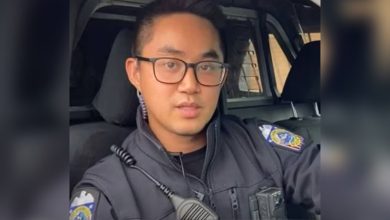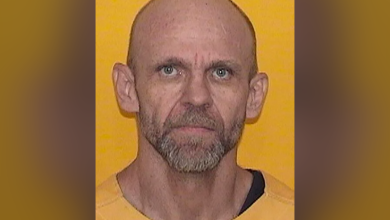
Ohio – Columbus and Dayton are suing Ohio Attorney General Dave Yost’s office over what they say is a failure to update the criminal background check system used to investigate potential gun owners.
In a lawsuit filed Monday in Franklin County Common Pleas Court, the cities argue that the attorney general’s office is responsible to “procure” information about any person convicted of a felony “from wherever procurable” and to add that information to a state database, which feeds into a federal background check system.
They cite reports that indicate that isn’t happening. In one, Ohio Auditor Keith Faber notes that in more than half of Ohio’s 88 counties at least one court or law enforcement department didn’t report records on time or, in some cases, at all, according to the lawsuit. A 2018 report from former Gov. John Kasich’s administration found that many clerks of courts around Ohio reported not sending complete criminal conviction information to the Bureau of Criminal Investigation and Identification (BCI).
The cities believe Yost’s office is obligated to seek that information out to ensure the state database has complete information. Not doing so has amounted to a “continuing and dangerous failure,” they wrote in the lawsuit.
“We want to make sure that our residents and visitors are safe,” Columbus Mayor Andrew J. Ginther said. “The only way to do that is to have a background check system that correctly identifies all individuals who have been convicted of certain offenses. The protection and safety of every Ohioan requires nothing less.”
Dayton Mayor Nan Whaley, City Attorney Zach Klein and other officials joined Ginther to discuss the lawsuit at a news conference Monday, with all of them citing BCI’s mismanagement of the state’s background check system.
The lawsuit asks the judge to find “BCI in default of its obligations” and direct the office “to promptly fulfill their mandatory, nondiscretionary legal obligations to procure disqualifying criminal history and other relevant information pertaining to all persons convicted of relevant crimes.”
“Ohio officials have a clear obligation to make sure felony criminal convictions and all other required records are part of the state and fed background check systems. Despite years of investigations, reporting and task forces, public record makes clear there are still massive gaps that have gone unaddressed for far too long,” said Eric Tirschwell, managing director of Everytown Law, a national organization representing the cities in the litigation.
In response to the lawsuit, BCI spokesman Bethany McCorkle said the complaint is embedded in “high drama, low substance and no solutions.”
“The best evidence of that is how we learned of it … through a press conference,” McCorkle said in an email. “The utter lack of communication smacks of bad faith and is a poor mechanism to fix any problem.
“We are investing millions of dollars to improve this system, and have taken steps to root out any errors. BCI is working with the court system and law enforcement agencies to ensure information is more quickly and accurately fed into the background check system as required. We cannot force them to provide the information. BCI is working toward having a process that is faster and the information is accurately verified. The problematic link in this chain is not BCI, as the complaint notes.”
Ohio’s last two governors have pressed for improvements to the background check system, but the Ohio General Assembly has not passed legislation to fix loopholes they have encountered.
After Kasich pointed out gaps in the system in 2018, Gov. Mike DeWine proposed his own fixes in 2019 after the mass shooting in Dayton’s Oregon District. DeWine tasked InnovateOhio with developing a data portal for 1,300 local agencies to file warrants and protection orders, with that information being shared across state databases that gun dealers use when selling a firearm.
DeWine asked state lawmakers to require local agencies to report to that system, but his gun reforms have gotten little traction in the General Assembly.
Tirschwell said the lawsuit will push BCI to make the necessary steps to improve public safety across the Buckeye state. For these steps to be made, he said all parties will need to properly identify the system’s issues.
“There are a range of potential solutions, but the first things that have to happen are to really scope out the full range of the problem and to confirm that BCI has this obligation,” he said.
Whaley said the two cities are well aware the lawsuit won’t immediately stop gun violence, but the system’s approval is needed to ensure public safety is justly prioritized.
“We won’t be able to stop shootings in Ohio overnight,” Whaley said, “but at the bare minimum, when a problem is as clear as this one and there are straight forward solutions, our constituents deserve action.”
“We will all be safer the day these problems are fixed.”





Leave a Reply